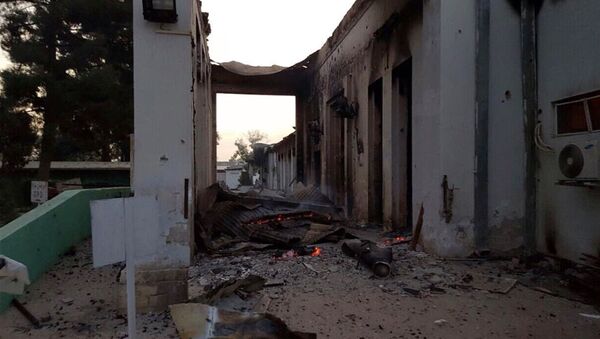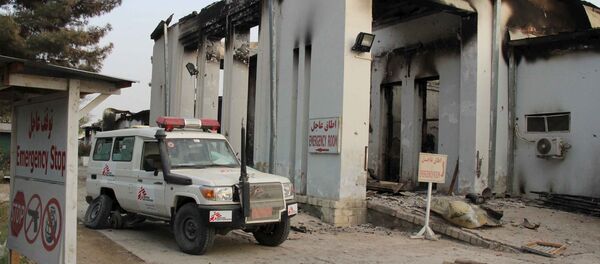"We want to see steps from those people that are actually bombing the hospitals. A large part of them are in the UNSC. Four out of five permanent UNSC members are actually active in the conflicts in Afghanistan, Yemen and Syria. Russia, the US, France and the UK all have planes in the air that are dropping bombs. These countries keep on saying they do not bomb hospitals, yet hospitals are being bombed," Hofman said.
"In the last three years, it is almost like an epidemic. We have been working in war zones for 40 years, so we know there are risky places. But it used to be may be once a year when one of our hospitals would get attacked. But in the last three years, it's every month," Hofman added.
MSF immediately demanded that the Kunduz bombing was investigated by an independent international body as a war crime, arguing Washington knew about the clinic's location prior to the attack.
Despite this, the Pentagon conducted an internal military probe and issued a heavily redacted report last April that described the airstrikes as a combination of human errors and technical failures.
On April 28, 2015, the al-Quds hospital in Aleppo, supported by the MSF, was attacked with an airstrike, which directly hit the building, killing at least 50 people.
On August 15, a Saudi-led coalition's airstrike partially destroyed a hospital in Yemen's Hajjah, run by the MSF, killing 14 people. It was the fourth attack on a hospital supported by the charity organization in 10 months.
"We still do not know why this whole escalation in the last three years is happening… We keep seeing all the nations and the UNSC pledging the adherence to the international humanitarian law, but bombing of hospitals does not stop," Hofman said.
The chief humanitarian specialist supposed that "something has changed on the military sides," as the organization is doing everything it used to do on its part, negotiating with all the parties to the conflicts, but the attacks on medical facilities become more frequent.
"Just saying that you respect the international humanitarian law for us now does not mean much anymore," Hofman noted.
Most recently, the bombing of the Syrian city of Aleppo late last Tuesday damaged two MSF-backed hospitals, killed two patients and injured two medical staff members.
The deadly attack on the Kunduz medical center and a rise in assaults on MSF-supported clinics in Syria and Yemen led to the UN Security Council passing a resolution in May 2016 that condemned targeting healthcare facilities and demanded accountability from warring parties.
Speaking at the UNSC last Wednesday, MSF's International President Joanne Liu called attacks on hospitals a red line and complained that nothing had changed since the adoption of Resolution 2286.






